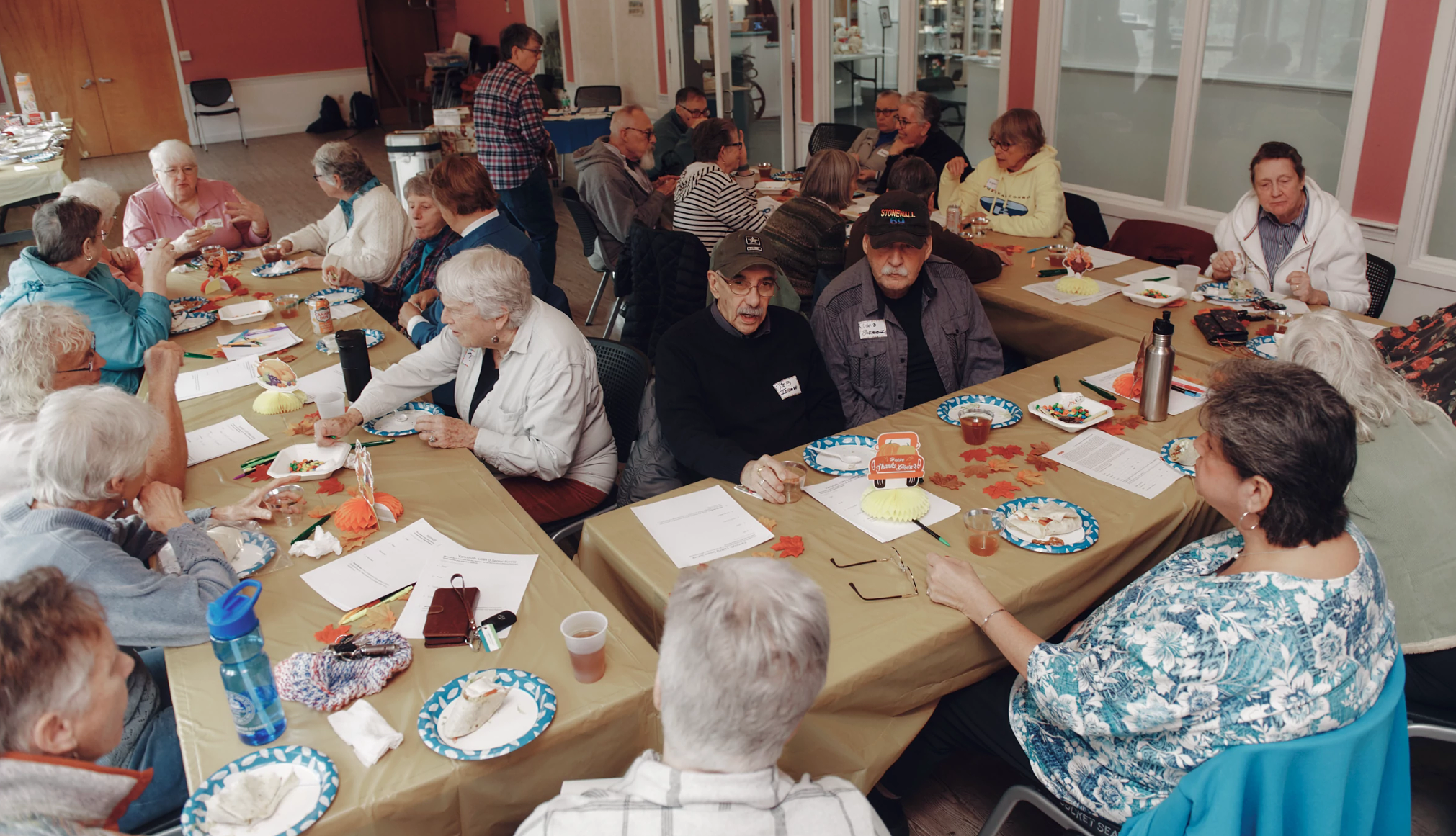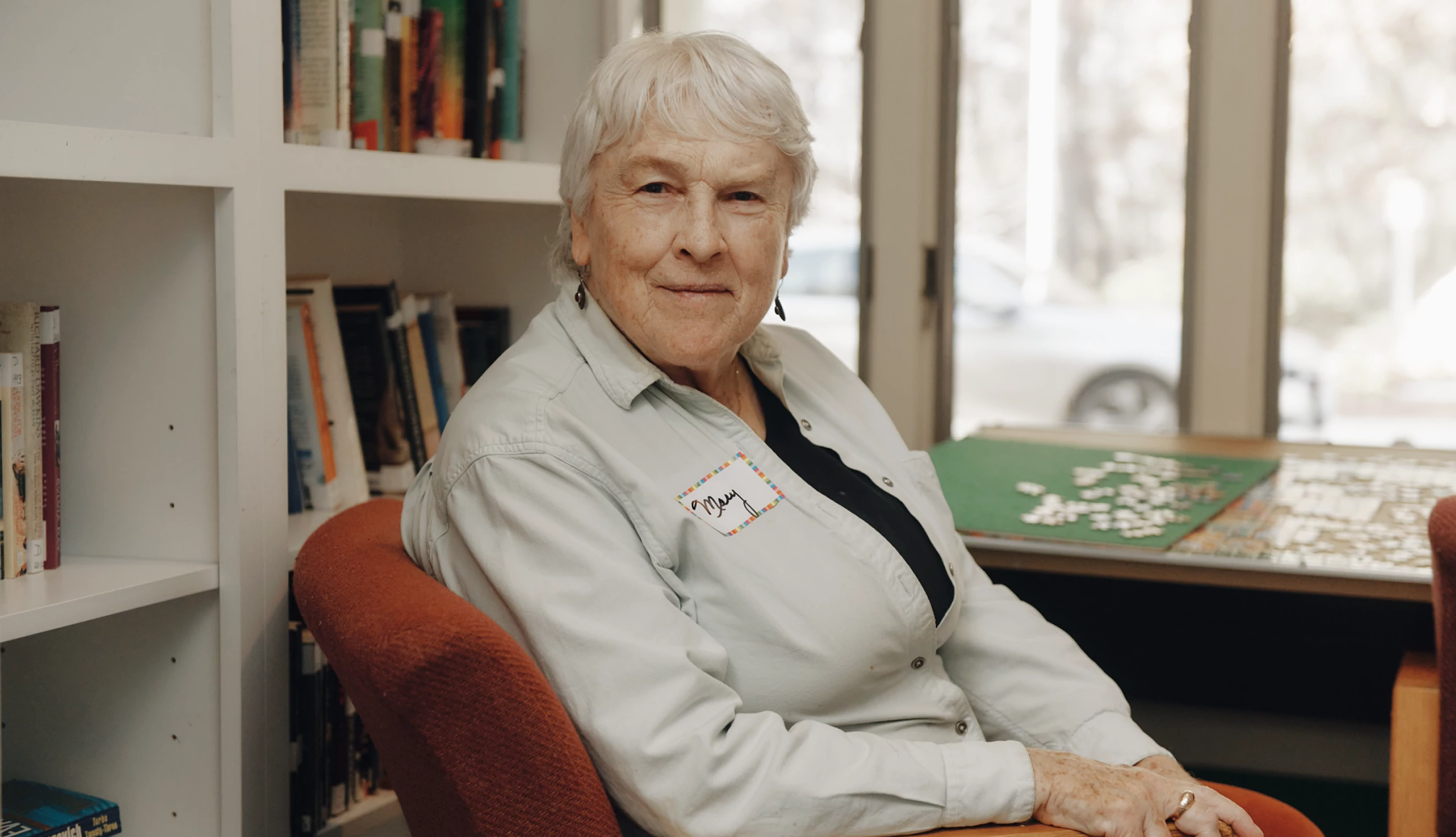AARP Hearing Center


LGBTQ+ older adults are finding new support in a traditional place: the senior center.
Theresa Latham of Yarmouth, Massachusetts, and her wife, Cheryll Scarangella, attend monthly meetings of an LGBTQ+ social group at the Yarmouth Senior Center that attracts people from several towns.
“They understand what you’re thinking, what you’re feeling,” says Latham, 65. “And I do think that there are a lot of older gay people who maybe they’re not out to people, or they still don’t feel comfortable. But I think that having a place like that, that’s a safe space, that you can talk and meet people who are like you, I think that’s great.”
In the United States, about 2.7 percent of adults 50 to 64 and about 1.8 percent of those over 65 identify as lesbian, gay, bisexual or transgender, according to a review of research and U.S. Census data by the UCLA School of Law. Compared to older adults who do not identify as LGBTQ+, the research finds they are more likely to live alone or to be single, to be financially insecure and to struggle with physical or mental health. Members of the LGBTQ+ community also are less likely to have children who might help care for them as they age.
To that end, senior centers are recognizing that these older adults want both social services and social programs in a space that feels safe and welcoming. Now, some traditional senior centers and centers specifically founded to serve LGBTQ+ clients offer older adult programming, either on their own or in collaboration with other organizations.
“People are living longer; they’re living in the community. There’s more diversity in our communities,” says Dianne Stone, associate director of network development and engagement for the National Council on Aging. “There’s populations that were hidden before, like the LGBTQ community, and now there’s just this visibility and there’s an expectation and a willingness for senior centers to serve everybody.”
Mary Nicolini, 76, who attends the Yarmouth social group, drives from her home in Eastham, Massachusetts, about 20 miles away for the monthly get-togethers. After her wife died, Nicolini felt more comfortable in LBGTQ+ bereavement groups, including two offered by the LGBTQ+ group at the Yarmouth Senior Center. For one thing, she didn’t have to keep explaining that her wife had died, not her “friend.”


“It’s kind of family. No one’s going to send you away. And there’s a relaxation in that,” Nicolini says. “So, I don’t have to explain myself.”



































































More From AARP
How One Woman Went From Floundering to Flourishing — and You Can Too
Discover how Mary uses practical, research-tested strategies to start flourishingHow to Dance Your Way to Better Health, Happiness
Dance — no matter what your talent level — is good for you25 Great Ways to Show Your Love
Romantic gestures that say ‘I love you,’ ‘be mine’ and ‘XOXO’